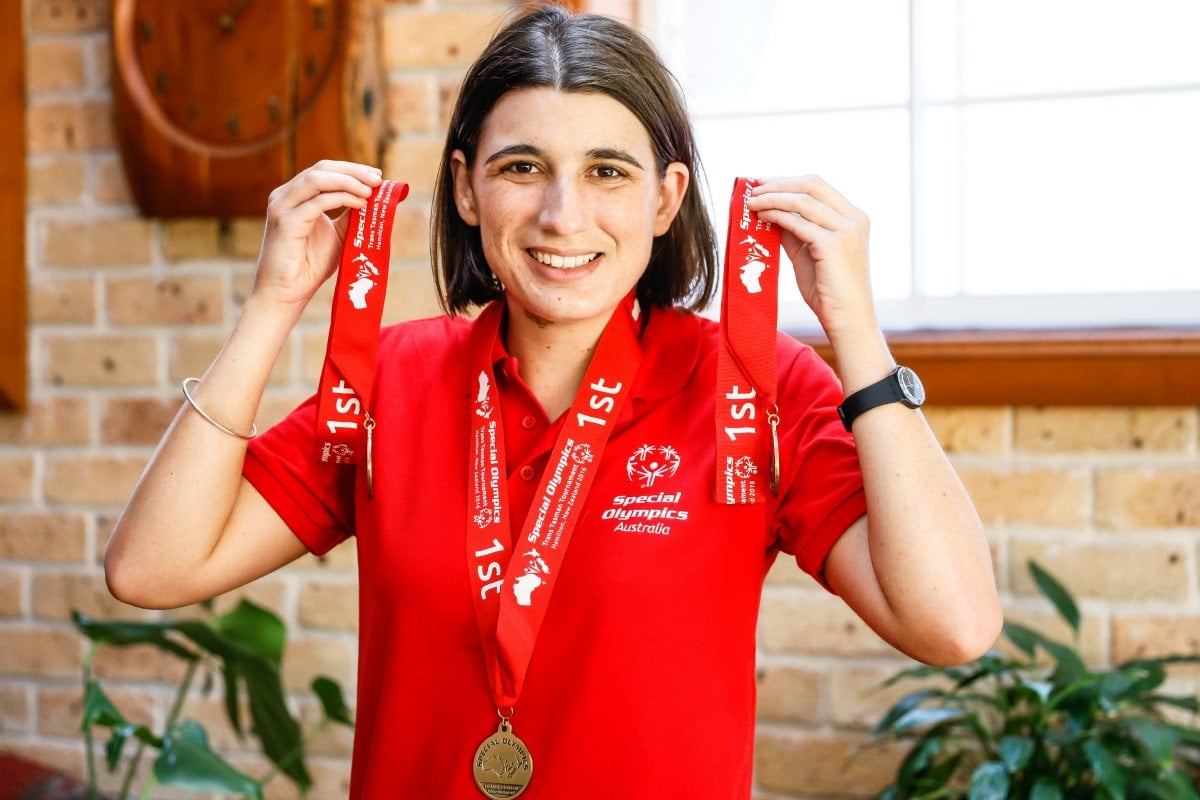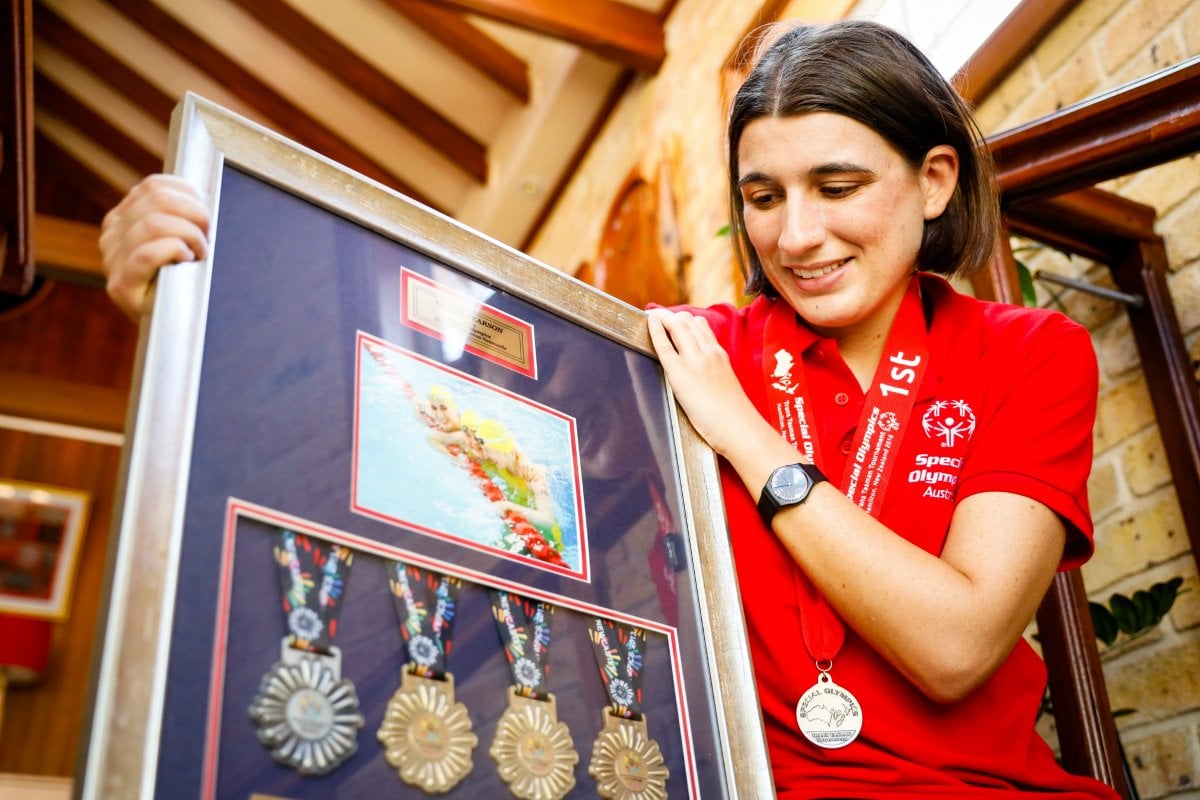
Swimmer Claire Pearson has won four medals for this country; three golds and silver, to be exact. The Sydney woman's haul for New South Wales is even bigger, and she's both captained and assisted the coach of her state's team.
It's likely, though, that you've never heard her name.
Claire, 25, is among 3,000 Australian athletes who participate in Special Olympics, a global sporting program for people with an intellectual disability.
Watch: How Special Olympics and NAB have helped Claire become a champion.
Founded in 1968 by the late Eunice Kennedy Shriver, philanthropist and sister of US President John F. Kennedy, the not-for-profit organisation offers year-round accessible training, coaching and competition opportunities, the pinnacle of which is the World Games, held every four years.
Claire, who was diagnosed with a global developmental delay at the age of two, has been a Special Olympics athlete since 2006.

